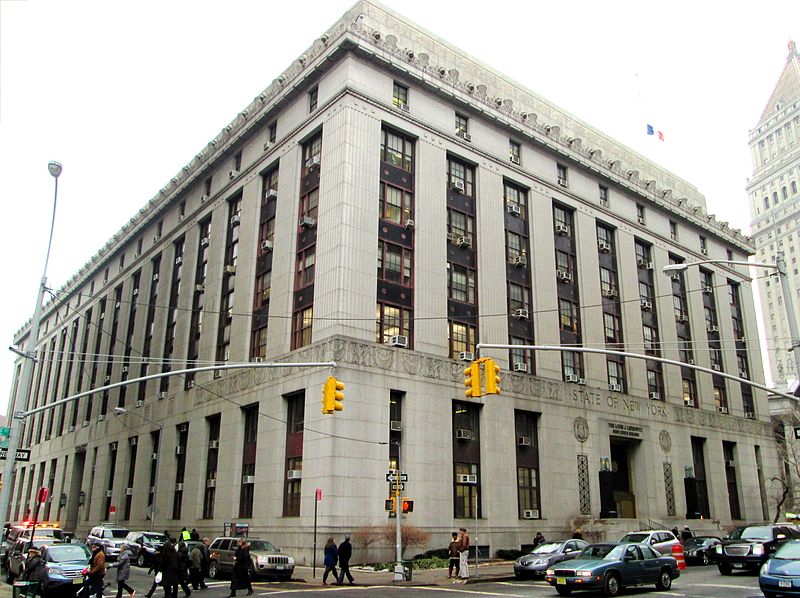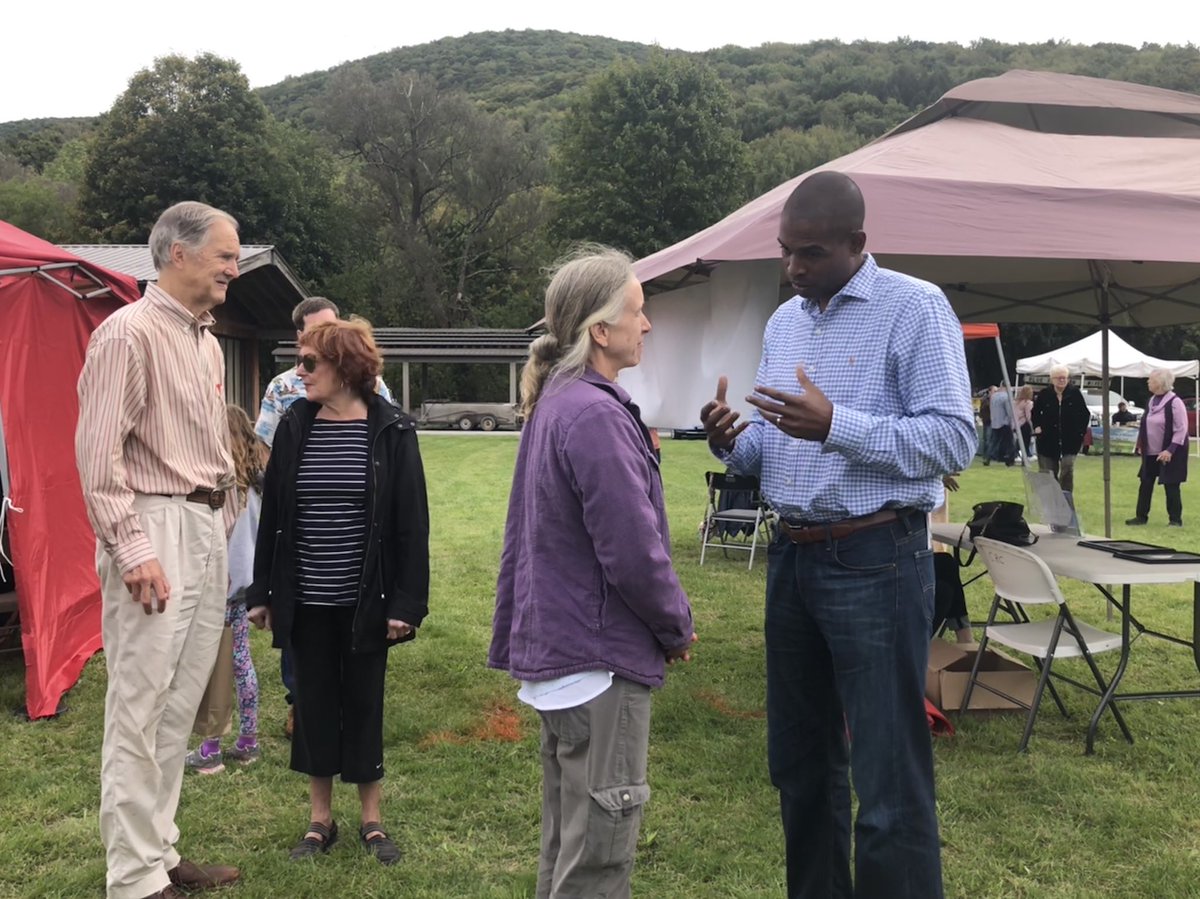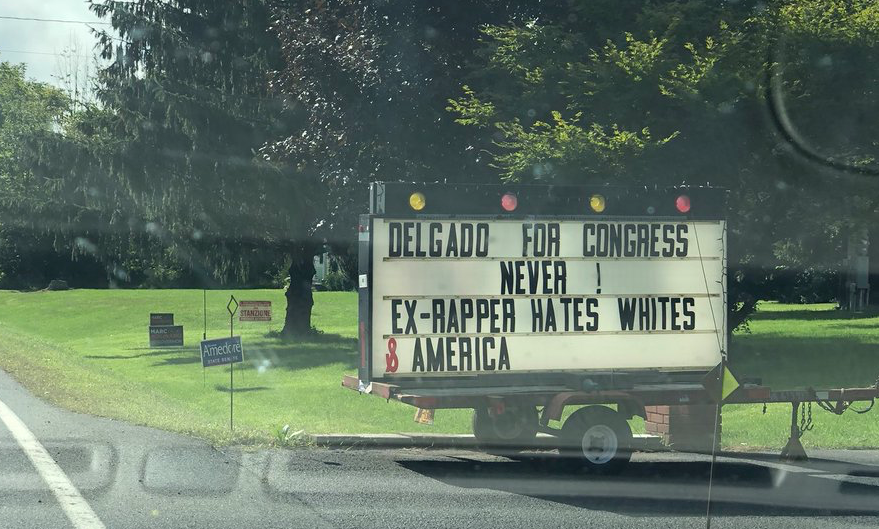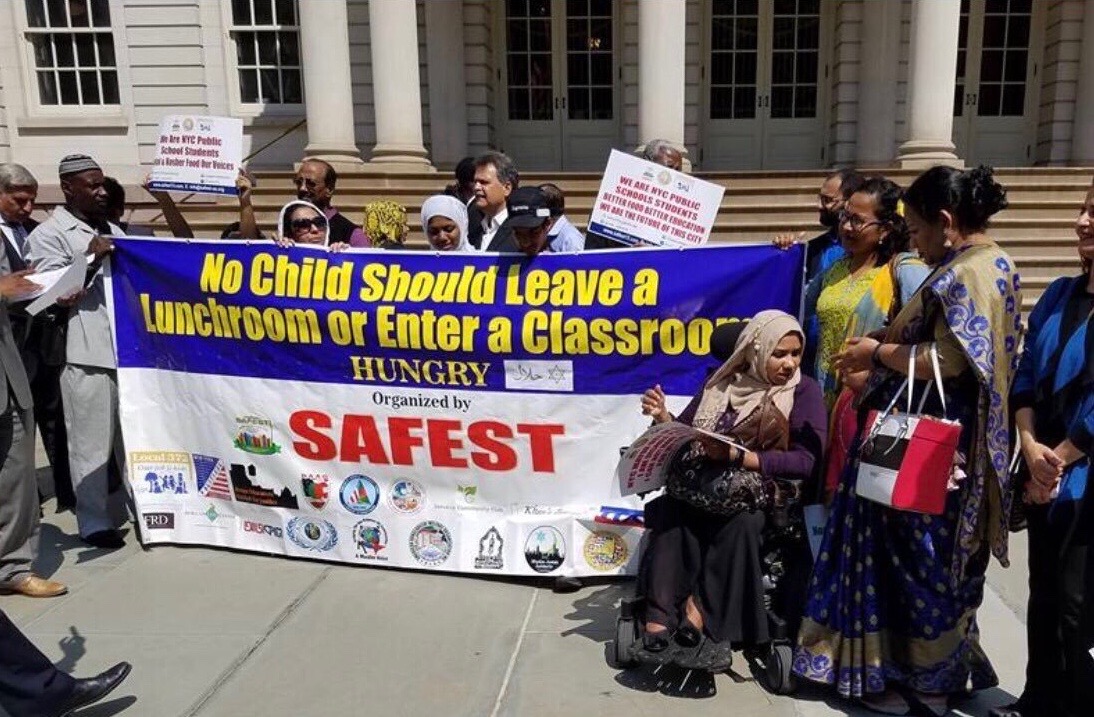Show the Lefkowitz Some Love

The Lefkowitz Building (photo: Beyond My Ken via Wikimedia Commons)
For nearly a decade, lovers have flocked to Lower Manhattan’s magnificent Louis Lefkowitz Building.
Why, you ask?
The handsome Lefkowitz is home to the Manhattan Marriage Bureau. Each year, thousands of couples climb its distinctive stone stairs, pass under its carved eagle friezes, and enter its ornate inner lobbies to make their affection official.
The Lefkowitz is especially beloved by LGBT New Yorkers. A whopping 293 newly-eligible pairs wed there on the first day same-sex marriage became legal.
“Getting married in a place with such historical significance made me feel like I was a part of something,” explained Sarah Factor, who tied the knot at the Lefkowitz with her wife Julie Mayrin shortly after marriage equality passed in New York.
“When we were finally able to marry, we came to the Lefkowitz,” added Mayrin, matter-of-factly. “Going up those stairs was symbolic for me as a native New Yorker.”
But the Lefkowitz now needs a little love of its own.
Though marriage is supposed to be forever, Mayor de Blasio wants to give this temple of love an ugly divorce. De Blasio plans to gut – or even demolish – the beloved Lefkowitz to build a more humane jail for those facing trial in Manhattan.
As Mayrin sees it, the mayor’s plan would “destroy a monument.” And neighbors, elected officials, and concerned New Yorkers are beginning to agree.
Mass incarceration is among our society’s greatest sins, and de Blasio is correct to upend an intolerable status quo. With its large floor plates, outdated upper offices, and proximity to the criminal courts, it would be smart and simple to reuse certain parts of the Lefkowitz for pre-trial detention.
The Mayor can do all of this without evicting soon-to-be newlyweds and destroying a deeply admired New York structure. All it takes are a few vows from city officials.
First, the Landmarks Preservation Commission should protect the Lefkowitz’s façades, roofline, and first-floor public interiors. The City Council should then step up to the altar and pass legislation ensuring marriages remain in their rightful place for good.
None of this will happen without your help. Call, write, or visit the mayor, Landmarks Commission, and City Council – and demand they protect the Lefkowitz “till death do us part.”
***
Adrian Untermyer is an urbanist who advocates for historic preservation and improved transportation in Greater New York and nationwide. On Twitter @Untermyer.
***
Have an op-ed idea or submission for Gotham Gazette? Email This email address is being protected from spambots. You need JavaScript enabled to view it.
Race-Baiting Politics Has No Place in Our District, or Any

(photo: DelgadoforNY19)
Drive through Greene County New York, just 90 minutes north of New York City, and you’ll see a large sign on the highway that pretty concisely states the main takeaway of the campaign Republicans are running here in New York’s 19th Congressional District: “DELGADO FOR CONGRESS. NEVER. EX-RAPPER HATES WHITES & AMERICA.”

The sign’s recent appearance coincided with the release of a new television ad by the National Republican Congressional Committee (NRCC), where the narrator states that Antonio Delgado, the Democratic nominee for Congress, who is African American, “claims he’s like us,” before playing 30 seconds of cherry-picked and spliced hip-hop lyrics over noticeably darkened, hooded images of Delgado, taken from a short music career he pursued over a decade ago. As anyone living here in NY-19 will tell you, this ad, and many just like it, have been playing non-stop on television, radio, and sites such as Hulu and YouTube since early July, backed by nearly $2 million in spending from the NRCC and Speaker Paul Ryan's Congressional Leadership Fund Super PAC (CLF).
This isn’t the first time in history stoking racial prejudices has been deployed as an electoral strategy. But with a record number of Democratic House candidates who are people of color, the Republican party in 2018 appears to be abandoning its decades pattern of innuendo and coded language, and shamelessly taking these tactics to a new level – overtly race-based attacks against the candidates themselves.
Antonio Delgado is a formidable opponent. And I should know, he beat me in the Democratic primary campaign just a few months ago. He is an inspiring campaigner and tireless worker who grew up in Upstate New York to parents working middle class jobs at GE. He’s a Rhodes Scholar and a graduate of Harvard Law School — the type of story we don’t see enough of here in Upstate New York — a committed husband and father. And he has the kind of diversity of experiences Congress is so badly lacking, from his career in hip hop advocating for social justice, to his time as an attorney spending thousands of hours championing pro bono causes including fighting for reduced sentences for juveniles facing life imprisonment.
While politics is certainly not for the faint of heart, and both parties are guilty of running ads based on identity politics, this advertising campaign to appeal to the least common denominator crosses a line.
The barely veiled implication of the language that Delgado isn't “like us,” serves a simple purpose: to stir up fear in Upstate New York that a man born and raised in this community couldn’t possibly share our values simply because he is black and once was a music artist. It’s hard to see the feigned shock over Delgado’s lyrics as anything more than what it clearly is — race-baiting, and relying on the color of a candidate’s skin, rather than any policy or political differences, to convince the voting public (approximately 85% of which is white in NY-19) that Delgado is not deserving of support.
In response, the NY-19 community has united to denounce these attacks. Nearly 20 local clergy signed a letter to Rep. John Faso, the incumbent Republican representative, calling the ads “a thinly veiled, racist attack for the purpose of insinuating fear in the voters in our district.” A local radio station, WDST, announced it would stop running the ads — the first time the station has ever pulled a political ad off air — with the station’s president calling the ads “highly offensive and factually distorted.” This past week, our former Republican Rep. Chris Gibson denounced the ads, telling WAMC he "regrets" them. SUNY New Paltz Professor Dr. Gerald Benjamin, a friend of Faso, issued a public apology for his comments in a July New York Times story, admitting“the casual use of the phrase ‘people like us,’” has “racist connotations.” But the NRCC’s most recent advertisement uses that exact language — questioning whether Mr. Delgado is ‘like us.’
Unfortunately, this is not the first time Rep. Faso has resorted to such tactics. He has been running ads warning residents to the dangers of MS-13, using the same image of Hispanic men in tank tops and tattoos that was featured in Virginia gubernatorial candidate Ed Gillespie’s controversial “Kill. Rape. Control.” advertisement. He used the debate over the agriculture bill to champion ineffective “work requirements” for SNAP benefits by saying local sheriffs “tell me every drug dealer they arrest has a SNAP card in his pocket.”
Certain Republicans claim that President Trump’s racist statements and policies represent a different brand of politics than their own. Faso dubiously claims he has ‘no control’ over the advertisements.. His recent claim that "there's nothing racial about [the ad]” is either an outright lie, or reveals an astonishing lack of judgment from a sitting member of Congress about the obvious implications of this line of attack. However, unless Faso and Republican leaders openly disavow each of these ads, and Republican donors refuse to fund the NRCC and CLF as long as they run, they are wholly responsible.
The good news is, from my experience in this community, I know these tactics won’t win out. During my primary campaign, I traveled to all 163 towns in this congressional district and the people I met, though we had plenty of disagreements, are certainly not the kind of people who will be easily fooled by such divisive tactics. To younger voters such as myself, hip-hop music is not something scary or threatening, it’s now the most popular genre amongst music fans (Kendrick Lamar just won a Pulitzer).
People are showing up in record numbers to protest what’s coming out of Washington, to volunteer for campaigns, and to vote in primaries. In our congressional district alone, turnout doubled for the June primary and hundreds are volunteering every weekend. Republicans are scared, and they should be. But, while there are many permissible tactics in politics — some savory, some not — to draw contrasts between candidates, we as a nation, state, district, community, no matter which party we are in, are better than relying on stirring up racial prejudice to win elections. And I’m confident voters in the 19th congressional district and across the country will agree this November.
***
Gareth Rhodes ran in this year’s Democratic primary for Congress in NY-19 and is the executive director of Show Up 2018. On Twitter @garethtrhodes.
***
Have an op-ed idea or submission for Gotham Gazette? Email This email address is being protected from spambots. You need JavaScript enabled to view it.
Advancing an Inclusive Approach to School Meals

School food inclusivity rally (@safest)
We as faith leaders are most privileged to cooperate on a project that will benefit our respective communities. For far too long, students who follow religious dietary guidelines have found their public school cafeteria lacks sufficient accommodation in the food offered. Typically students who require a kosher or halal meal have very limited options in school lunch offerings, often choosing to eat nothing. At this time in history, with persistent and growing incidents of discrimination based on religious and racial animus, New York City needs to embrace every possible opportunity to show compassion, inclusivity, and accommodation for all students – and to ensure no child needs to leave the school cafeteria hungry.
It is impossible to know for sure how many students follow religious dietary restrictions. However, with roughly 38 percent of public school students identifying as Muslim or Jewish, it is possible that thousands of students do not participate in current Department of Education School Food programs because of their religious customs. And with 72 percent of the city’s public school students qualifying for free or reduced-price lunches – a potential indicator of food insecurity – it is clear that the number of students who could benefit from a halal or kosher meal in school is significant.
Many of us in the Muslim and Jewish faith communities, joined by community groups, have been advocating for years for the Department of Education to offer halal and kosher food options in schools. We know accommodating this request is not easy, given the complexities of a food distribution network that serves meals to approximately 600,000 students each day, second only to the U.S. Military.
Now, after years of advocacy, we are celebrating a key milestone: this year, $1 million has been allocated in the city budget to pilot halal and kosher school lunches in four schools. Thanks to the leadership of City Council Members Chaim Deutsch and Rafael Espinal and Speaker Corey Johnson, this historic funding will provide a solid foundation to pilot halal and kosher food options in city schools.
But funding the pilot is just the beginning. Our campaign is now facing a critical moment to ensure that the city designs and executes a halal and kosher pilot program responsibly, with full inclusion of parents and school communities who will benefit from halal and kosher school lunches.
Comptroller Scott Stringer has already laid forth a blueprint, detailing several options for how such a pilot could be structured. Now that funding for a halal and kosher lunch pilot has been secured, we believe these recommendations merit real consideration by the Department of Education as it plans how to implement the pilot program.
A central element of the Comptroller’s blueprint for piloting halal and kosher school lunches includes the establishment of an advisory committee. This group would include leaders from faith communities, community advocates, school food content experts, food service workers, parents, teachers, and students. The advisory committee could advise and support DOE when selecting schools for inclusion in the pilot, evaluating kitchen space retrofitting needs, developing training programs for food service workers in schools, and coordinating opportunities for community engagement to both raise awareness of the new food offerings and to build trust among parents that halal and kosher food offered in school cafeterias is a legitimate option that meets religious dietary guidelines. An informed advisory body is crucial for successfully serving halal and kosher lunches to students.
Our communities have already been working, informally, in this capacity. Over the past several months, over 50 advocates and leaders from Muslim and Jewish communities have convened in Comptroller Stringer’s office to weigh the complexities and challenges for this campaign and to consider how best to guide and influence this conversation. Now it is time to formalize this role, and become true partners in advancing this important work.
Offering halal and kosher school lunches will benefit all school children by fostering diversity and inclusivity, and ensuring that all children have every opportunity to learn and excel in school. As halal and kosher school lunches are about to become a reality, it is vital that community voices that have been successfully advocating for this cause for years, be recruited to help to make it a reality. All parties want this pilot to be a thoughtful and efficient program, one that will both inform future decision-making on this topic, and positively impact the lives of children who will benefit from a much needed mid-day meal. We are most grateful to Comptroller Stringer and his staff for bringing our faith communities together to demonstrate that unity and diversity can work together. Now it is time to move the work further ahead.
***
Rabbi Joseph Potasnik is Executive Vice President, New York Board of Rabbis. Imam Al-Hajj Talib Abdur-Rashid is Chairman, the Association of African American Imams.
***
Have an op-ed idea or submission for Gotham Gazette? Email This email address is being protected from spambots. You need JavaScript enabled to view it.




